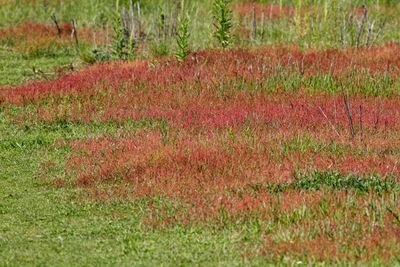Can You Eat Sheep’s Sorrel?
Full of vitamins and nutrients, sheep’s sorrel is used to treat bacterial infections such as Salmonella, E-coli, and Staph. According to info about sheep’s sorrel as food, it tastes great as well. Native to Asia and much of Europe, this plant has naturalized in the U.S. and is widely available in many forests and even lawns. Sources say the plant contains oxalic acid, giving it a tart or tangy taste, similar to rhubarb. The leaves are edible, as are the roots. Use them as an unusual addition to salads, or stir-fry the roots along with peppers and onions for numerous dishes.
Sheep’s Sorrel Herbal Use
Among the most prominent of sheep’s sorrel herbal use is in the cancer treatment concocted by Native Americans, called Essiac. This remedy is found in capsule form, teas, and tonics. As to whether Essiac really works, there is no clinical evidence due to a lack of trials. The Romans used Rumex types as lollipops. The French concocted a popular soup from the plant. It seems to be popular for healing too – as the stings of nettle, bees, and ants can be treated with leaves of the Rumex. These plants contain an alkali that neutralizes the acidic bite, removing the pain. When using sheep’s sorrel herbally or for food, there are many varieties from which to choose. Of the 200 varieties, taller ones such as R. hastatulus are called dock, while shorter varieties are referred to as sorrels (meaning sour). It appears, though, that the common names are used interchangeably. Rumex hastatulus is said to be the tastiest and easiest to identify. It is called heart-wing sorrel, sometimes referred to as dock. Curly dock (R. crispus) is one of the more popular types. Foraging for dock and sorrel was popular during the Great Depression, but not so much these days. However, it is good to recognize this range of edible plants in case you ever need to forage for food, which may be as close as one’s own backyard. Disclaimer: The contents of this article are for educational and gardening purposes only. Before using or ingesting ANY herb or plant for medicinal purposes or otherwise, please consult a physician, medical herbalist, or other suitable professional for advice.
